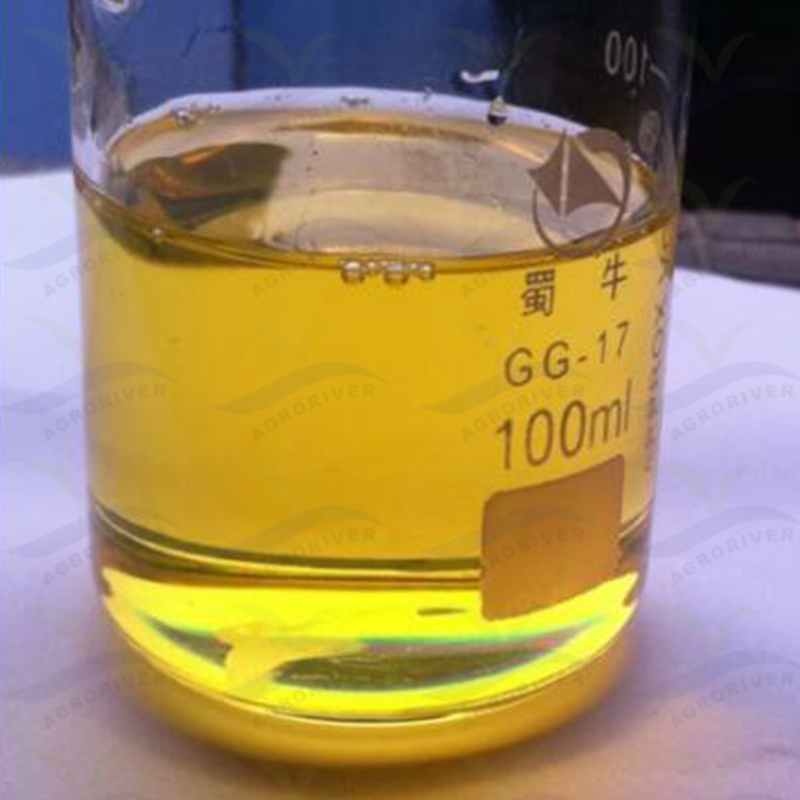German pharmaceutical giant Bayer has vowed to appeal the verdict.
A Philadelphia jury has delivered a $2.25 billion verdict against agricultural giant Monsanto, deciding in favor of a Pennsylvania man who contended he developed cancer as a result of using the company’s weed killer, Roundup. Pre Emergent Herbicide

The unanimous verdict issued Friday awarded John McKivison, 49, of Lycoming County, $250 million in compensatory damages, and $2 billion in punitive damages. The jury found that Roundup causes cancer, and that Monsanto was negligent and failed to warn consumers of the dangers of the product, said McKivison’s attorneys, Tom Kline of Kline & Specter in Philadelphia, and Jason Itkin of Houston-based Arnold & Itkin.
“We are thankful that this unanimous jury found that Bayer/Monsanto’s Roundup was responsible for causing John McKivison’s blood cancer,” Kline and Itkin said in a statement. “The jury’s punitive damages award sends a clear message that this multi-national corporation needs top to bottom change.”
McKivison’s attorneys said that he began using Roundup at his job at a warehouse when he was in his 20s. Because the product killed weeds effectively at his work, McKivison began spraying it regularly at his family’s home over the next two decades, his attorneys said. McKivison’s personal properties were as large as two acres, and he used the weed killer on food plots he and his family planted to attract wildlife. At one point, his attorneys said, he dispersed Roundup on his property from a tractor in 25- to 30-gallon loads.
“The difference in his life, truly, is that he was exposed to Roundup,” Kline said.
At issue in the case was the chemical glyphosate, Roundup’s active ingredient, as well as other ingredients in the weed killer. Monsanto developed glyphosate in 1974, and it has since become one of the most widely used herbicides worldwide, despite concerns that the chemical is carcinogenic. The lawsuit also named Nouryon, a Radnor-based chemical company that manufacturers another ingredient in Roundup known as a “surfactant” that helps the herbicide effectively kill weeds.
World agencies have differed on glyphosate’s carcinogenic properties.
In 2015, the International Agency for Research on Cancer, part of the World Health Organization, classified glyphosate as part of a group of chemicals that are “probably carcinogenic to humans.”
But in 2020, the U.S. Environmental Protection Agency found that there were “no risks of concern to human health” when glyphosate is used according to label instructions. In its report, the agency added that glyphosate “is unlikely to be a human carcinogen.”
After legal challenges, the EPA stood by its 2020 findings but said that it would “revisit and better explain its evaluation of the carcinogenic potential of glyphosate.” Other groups, such as the European Commission, have since said that there is no evidence allowing them to conclude glyphosate is carcinogenic.
German pharmaceutical giant Bayer, which became Monsanto’s parent company after it purchased the group in 2018, said it would appeal the Philadelphia jury’s verdict.
“We disagree with the jury’s adverse verdict that conflicts with the overwhelming weight of scientific evidence and worldwide regulatory and scientific assessments, and believe that we have strong arguments on appeal to get this verdict overturned and the unconstitutionally excessive damage award eliminated or reduced,” the company said in a statement.
Monsanto and subsequently Bayer have been sued thousands of times in complaints linking Roundup to cancer. But Friday marked one of the largest verdicts against the herbicide in the past several years. In a statement, Bayer said that it has “resolved the majority of claims filed in this litigation,” winning 10 of the last 16 Roundup cases that went to trial, and reducing damages by more than 90% in final judgments.
Amid a string of lawsuits, Bayer in 2020 agreed to pay up to $10.9 billion to settle Roundup-related litigation. That settlement, the Associated Press reported, involved roughly 125,000 lawsuits.
Other cases have cropped up since then, including one from December in which a jury awarded a plaintiff $3.5 million in compensatory and punitive damages. And in October, Bayer lost another Roundup case in Philadelphia, also filed by Kline and Itkin, with a jury ordering the company to pay $175 million to the plaintiff.
Bayer has since vowed to appeal those verdicts as well. Kline said that the company’s response and vow to appeal in local cases such as this one “cannot outshout a sustainable jury verdict under careful scrutiny and guidance by constitutional judge in the Pennsylvania court system.”

Thiamethoxam 25 “Their effort here is part of a systematic effort to undermine the integrity of the Pennsylvania courts and the administration of justice in our commonwealth,” Kline said.